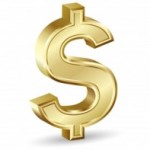I hope you find my writing and business tips and observations useful. My business and blog are dedicated to helping businesses communicate clearly and reach their potential.
Read, subscribe to my newsletter, enjoy!Tash
Paying yourself and profit
Yesterday, I wrote about the definition of profit. As a small business owner (that is, a sole trader or partner rather than a company or trust,) how do you get paid – it is an expense or does it come from your profit?
Depending on how you have set things up, it could be either way, or even both.
1. you pay yourself a salary/wage
If you pay yourself regularly as you would any employee, then your pay is an expense – as are the workers compensation, superannuation, PAYG and other employment expenses. Your pay is removed from your turnover before you calculate profit and your profits are in addition to your income.
2. you don’t get paid a salary/wage
If you get money from your business on a less formal arrangement, such as only when there is enough money in the account or as you need it, you take drawings from your investment in the business. Drawings are not counted as an expense so they come out of your profits. The more profitable the business, the more money you can draw upon, but if there is little profit, you can’t access much.
 Either way, your profits are there for use in the business or for you to take as drawings and spend however you wish. The distinction is important in accounting terms for the following types of situations:
Either way, your profits are there for use in the business or for you to take as drawings and spend however you wish. The distinction is important in accounting terms for the following types of situations:
- you are taxed on the profits of your business
- calculations based on your profits (eg x% of profits as a donation or as rent)
- applying for financial assistance (loans, etc) and facilities (merchant accounts, etc)
- division of profits with a partner (if in a partnership)
- valuations of your business for insurance or selling purposes
How do you get paid from your business? Why do you manage it that way?

Recent Comments